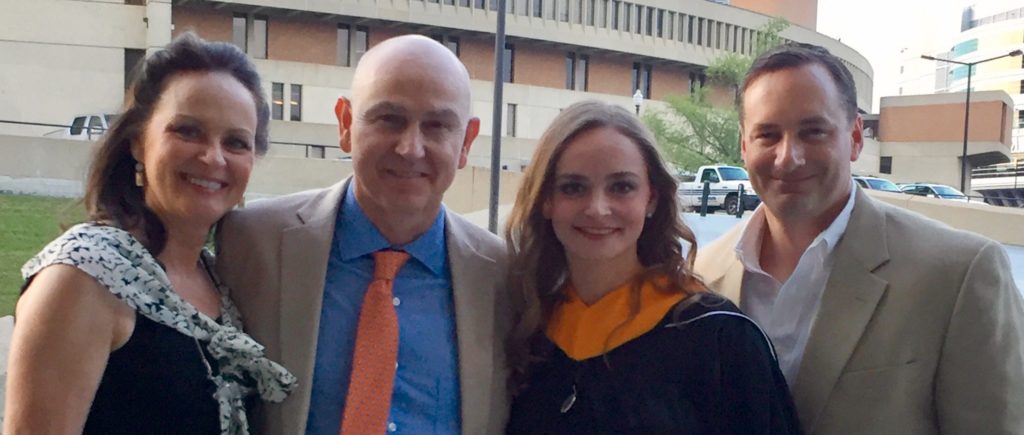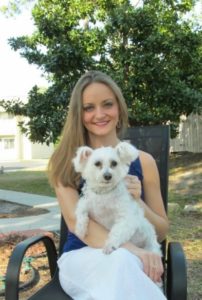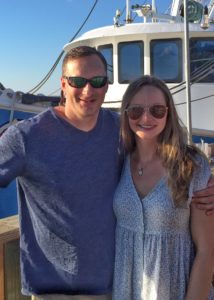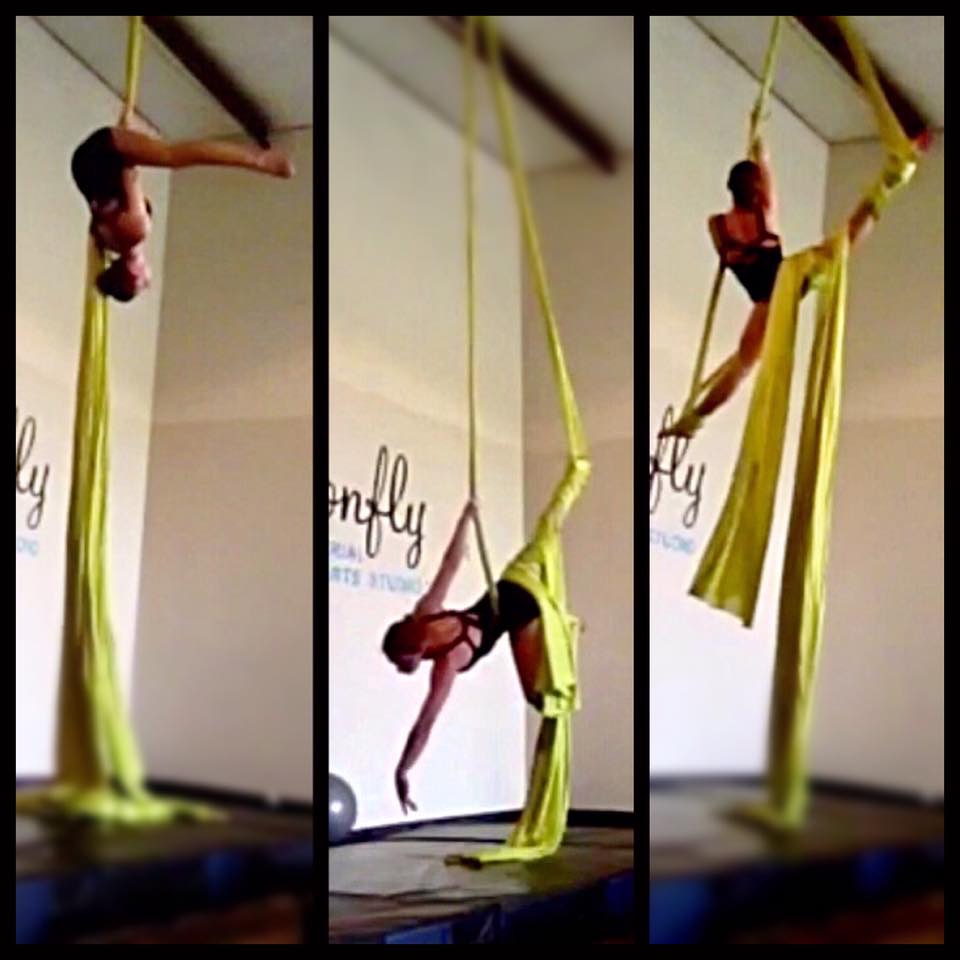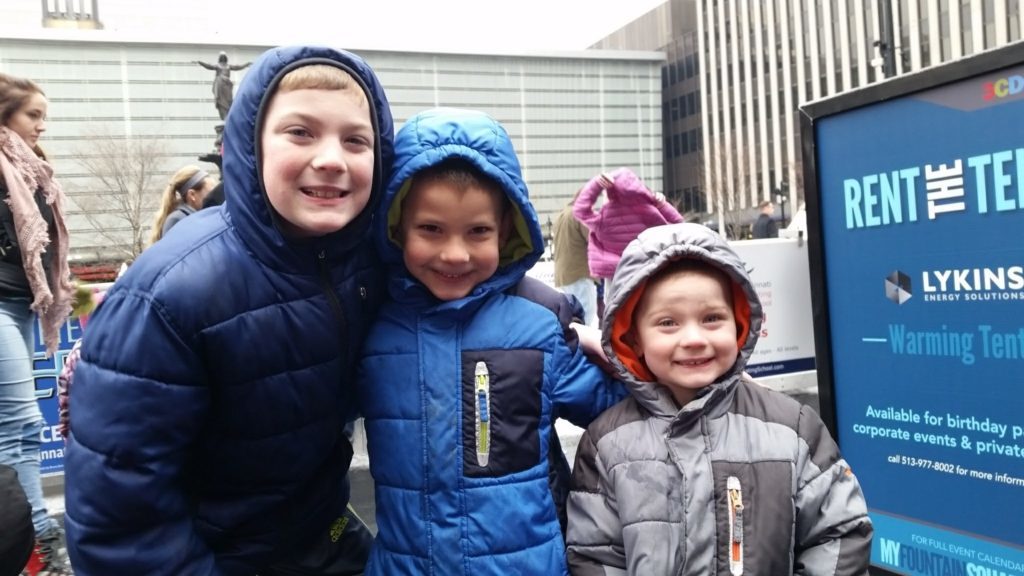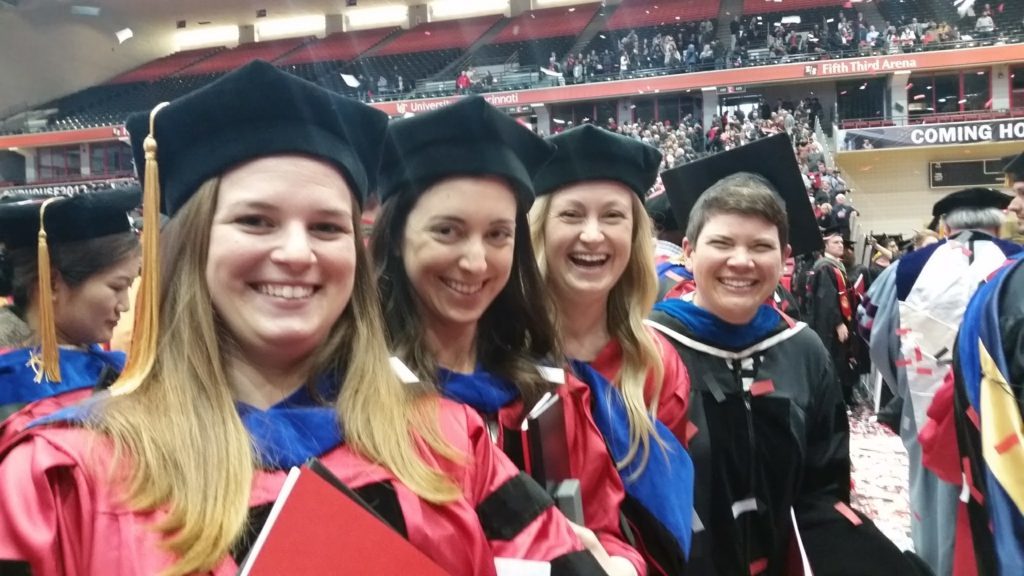School Psychology
Kala is currently seeking her PhD with the School Psychology program. Originally from Asheville, NC, she graduated Summa Cum Laude with her BS in psychology at Millsaps College and earned an MS with the Applied Educational Psychology program here at the University of Tennessee, Knoxville. She joined School Psychology in 2014. We asked her to reflect on some past and current experiences. Read her responses below.
Awards
National
- American Academy of School Psychology Memorial Scholarship for Research (2016): Awarded annually to five deserving doctoral students in school psychology.
- National Association of School Psychologists Graduate Student Research Grant (2015): Awarded annually to three students who demonstrate exceptional ability to conduct high-quality research that furthers the mission and goals of NASP and has the potential to impact the field positively.
University
- Chancellor’s Fellowship (2014-2018): A four year, merit-based fellowship awarded annually by the Office of the Chancellor to two incoming graduate students per college.
- University of Tennessee 3 Minute Thesis (3MT©) Semifinalist (2017): 3MT© is a research communication competition in which participants have three minutes and a single slide to present their research to a lay audience.
- Chancellor’s Citation for Extraordinary Professional Promise (2016): Awarded by the Office of the Chancellor to graduate students for professional promise in teaching, research, or other contributions.
- Shipley-Swann Fellowship (2014): A one year fellowship awarded by the graduate school to students who demonstrate academic excellence.
Accomplishments
Roles/Positions
- President, UT School Psychology Association 2016-2017
- School Psychology Student Representative, Department of Educational Psychology and Counseling 2015-2016
- GRA, School Psychology program faculty 2014-2016
Refereed Journal Publications
- Cazzell, S., Taylor, K., Skinner, C., McCurdy, M., Skinner, A., Ciancio, D., Beeson, T., & Cihak, D. (2017). Evaluating a computer flashcard reading intervention with self-determined response intervals in a post-secondary student with intellectual disability. Journal of Evidence-Based Practice in the Schools, 16(1), 74-94.
- Cazzell, S., Skinner, C., Taylor, K. (2017). Implementing computer flashcard reading with self-determined intervals. Journal of Evidence-Based Practice in the Schools, 16(1), 95-100.
- Cazzell, S., Skinner, C., Ciancio, D., Aspiranti, K., Watson, T., Taylor, K., McCurdy, M., & Skinner, A. (2016). Evaluating a computer flashcard sight-word recognition intervention with self-determined response intervals in elementary students with intellectual disability. School Psychology Quarterly. Advance online publication.
Symposiums
- Taylor, K., Skinner, C., Ciancio, D., Turnbull, S., Ruddy, J., Beeson, T., & Skinner, A. (2016, October). Altering text to make it disfluent hinders sight-word acquisition in post-secondary students with Intellectual Disability. In C. H. Skinner (Chair), Computer-delivered learning trials to enhance sight word reading in post-secondary students with Intellectual Disability. Symposium conducted at the Tennessee Association for Behavioral Analysis 19th Annual Conference, Nashville, TN.
- Turnbull, S., Taylor, K., Beeson, T., McCurdy, M., Skinner, C., Ciancio, D., & Skinner, A. (2016, October). Allowing students to self-determine response intervals during computer-based S-R-S-R learning trials. In C. H. Skinner (Chair), Computer-delivered learning trials to enhance sight word reading in post-secondary students with Intellectual Disability. Symposium conducted at the Tennessee Association for Behavioral Analysis 19th Annual Conference, Nashville, TN.
- Gibbons, S., Ryan, K., Taylor, K., Beeson, T., Turnbull, S., Skinner, C., Cianico, D. & Skinner, A. (2016, October). Self-determined versus fixed 1-s and 5-s response intervals. In C. H. Skinner (Chair), Computer-delivered learning trials to enhance sight word reading in post-secondary students with Intellectual Disability. Symposium conducted at the Tennessee Association for Behavioral Analysis 19th Annual Conference, Nashville, TN.
- Taylor, K., Skinner, C., Ciancio, D., Turnbull, S., Ruddy, J., & Beeson, T. (2016, May). The effects of perceptual dysfluency on sight-word acquisition rates in a post-secondary student with intellectual disabilities. In C. H. Skinner (Chair), Enhancing word reading in post-secondary students with Intellectual Disability. Symposium conducted at the Association for Behavior Analysis International 42nd Annual Convention, Chicago, IL.
- Turnbull, S., Taylor, K., McCurdy, M., Skinner, C., Ciancio, D., & Beeson, T. (2016, May). Evaluating a computer flashcard reading intervention with self-determined response intervals in a post-secondary student with intellectual disabilities. In C. H. Skinner (Chair), Enhancing word reading in post-secondary students with Intellectual Disability. Symposium conducted at the Association for Behavior Analysis International 42nd Annual Convention, Chicago, IL.
- Ryan, K., Gibbons, S., Taylor, K., Beeson, T., Turnbull, S., Skinner, C., & Ciancio, D. (2016, May). Evaluating and comparing computer flashcard reading interventions: Self-determined response intervals verses fast and slow computer paced. In C. H. Skinner (Chair), Enhancing word reading in post-secondary students with Intellectual Disability. Symposium conducted at the Association for Behavior Analysis International 42nd Annual Convention, Chicago, IL.
Paper Presentations
- Moore, T., Daniels, S., Eshbaugh, J., Gordon, J., Kirkpatrick, B., O’Reilly, C., Taylor, K., & Wright, S. (2017, October). Supporting effective classroom management and behavior management practices: Reports from school staff and implications for the behavior analyst. Paper submitted for presentation at the Tennessee Association for Behavioral Analysis 20th Annual Conference, Nashville, TN.
- DeZutter, S., Taylor, K., Hewlett, A., & Hoskin, S. (2015, April). Where do we go from here?
Questions raised by student-perceived incongruities between research on self-regulation and practices encountered at a high-poverty school. Paper presented at the Annual Meeting of the American Educational Research Association, Chicago, IL.
Poster Presentations
- Taylor, K., Skinner, C. H., Ciancio, D., Krider, S., Gibbons, S., Ruddy, J. & Ryan, K. (2017, August). Effects of foreign names on elementary students’ reading comprehension and comprehension rate. Poster presented at the American Psychological Association Convention, Washington, DC.
- Taylor, K., Gibbons, S., Ryan, K., Ruddy, J., Turnbull, S., Skinner, C. H., & Beeson, T. (2017, August). Perceptual fluency and word acquisition in students with disabilities. Poster presented at the American Psychological Association Convention, Washington, DC.
- Taylor, K., Skinner, C., Cazzell, S., Ruddy, J., Ciancio, D., Cihak, D., & Beeson, T. (2016, February). Perceptual disfluency and learning in a FUTURE student with Intellectual Disability. Poster presented at the University of Tennessee Gallery of Excellence, Knoxville, TN.
- Cazzell, S., Taylor, K., Skinner, C., McCurdy, M., Skinner, A., Ciancio, D., Beeson, T., & Cihak, D. (2016, February). Evaluating a computer flashcard reading intervention with self-determined response intervals in a post-secondary student with Intellectual Disability. Poster presented at the University of Tennessee Gallery of Excellence, Knoxville, TN.
- Gibbons, S., Ryan, K., Skinner, C., Taylor, K., Beeson, T., Ciancio, D., & Cazzell, S. (2016, February). Expanding research on a computer-based flashcard reading intervention with a post-secondary student in the FUTURE Program. Poster presented at the University of Tennessee Gallery of Excellence, Knoxville, TN.
- Taylor, K., Cazzell, S., Ruddy, J., Skinner, C. H., Ciancio, D., Cihak, D., & Beeson, T.
(2016, February). Disfluency and sight-word learning in a student with Intellectual Disabilities. Poster presented at the National Association of School Psychologists Annual Convention, New Orleans, LA. - Taylor, K., Ruddy, J., Cazzell, S., Skinner, C. H. (2015, November). Investigating the effects of flashcard text fluency on learning. Poster presented at the Mid-South Conference for Psychology in the Schools, Murfreesboro, TN.
- Taylor, K., Ciancio, D., Ruddy, J., & Skinner, C. H. (2015, August). Correlating WCPM with
reading comprehension and global reading ability. Poster presented at the American Psychological Association Convention, Toronto, Canada. - Taylor, K., Scott, K., Turnbull, S., & Watson, T. (2015, August). The effectiveness of readability
formulas as predictors of oral reading fluency. Poster presented at the American Psychological Association Convention, Toronto, Canada. - Taylor, K., Ciancio, D., & Ruddy, J. (2014, November). Correlating WCPM with the Woodcock
Johnson passage comprehension subtest and broad reading cluster in a sample of first- through third-grade students. Poster presented at the Mid-South Conference for Psychology in the Schools, Chattanooga, TN.
See Curriculum Vita for additional details.
Current Occupation
Graduate Research Assistant
Tennessee Behavior Supports Project (TBSP)
Department of Theory and Practice in Teacher Education
University of Tennessee, Knoxville
TBSP provides technical assistance (i.e., training, consulting, and external coaching) to East Tennessee public schools and districts to develop, implement, and sustain continuums of positive behavioral interventions and supports within an RTI2-B framework.
Personal Interests
I am an aerialist, so I spend several hours a week training on fabrics, and recently, lyra. In my free time I enjoy gardening, traveling, working on my house, and spending time with my partner and family. I have four wonderful pets that bring incredible joy to my life. I am the proud daughter of a veterinarian, and it shows. I can find an animal in need anywhere and am actively involved in rescue and trap-neuter-return efforts.
Future/Vocational Goals
I plan to obtain my Nationally Certified School Psychologist credential and then pursue licensure. I enjoy working in both school and clinical settings, and I want to have the option to do either. I decided to pursue a degree in school psychology because I wanted to help diverse children and families from low-socioeconomic status backgrounds. That is still my primary goal, but I haven’t decided exactly what it will look like in practice yet.
What sold you on this program/department/university?
Initially, I applied to UT because of an article I read citing Chris Skinner as one of the most published authors in the field of school psychology. I was interested in his research on reading and thought we would be a good fit. I was also impressed by the efficiency of the program. Students tend to finish in five years and defend their dissertations before internship; I didn’t find those things at the other universities where I interviewed. There was better funding available at UT than most of the other programs I was interested in, and the graduate students I met at interviews seemed to have a healthy work/life balance. I also wanted to move closer to my parents, and I have family in Knoxville.
What would you tell an incoming student who joins the program/department?
Get things done before the deadline. Learning to do things early will put you ahead, free up time for other endeavors, and relieve so much stress. Also, be your own advocate. Look for opportunities outside of your program. You are in charge of your own success.

